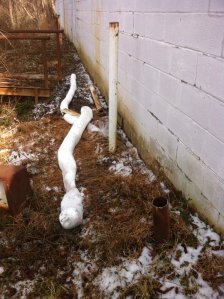CHARLESTON, West Virginia (CNN) — Independent testing of water supplies from a hotel and home in southwest West Virginia showed the presence of a chemical after a leak in the area last week, but both samples were within levels believed to be acceptable for consumption.
CNN commissioned the study, which was conducted by TestAmerica, a private company.
Samples taken Tuesday showed the presence of 4-methylcyclohexane methanol — a substance used in the coal industry — well below the 1 part per million considered safe to drink.
Water in the private residence tested at 0.27 parts per million, or about a fourth of the limit, while water at the hotel tested at .011 parts per million, roughly a hundredth of the limit, according to the testing firm.
The hotel had been cleared to resume water use; the private residence had not.
More than half of the 300,000 West Virginians who haven’t been able to turn on their faucets since last week now have access to safe water again.
About 51,000 customers — or 153,000 people — have had their “do not use” water order lifted, according to Laura Jordan, external affairs manager for West Virginia American Water.

The problem stemmed from a leak of several thousand gallons of 4-methylcyclohexane methanol from a storage tank belonging to a company called Freedom Industries. That chemical made its way into the Elk River, to a water plant about a mile upstream, and then into the water system.
Calls to Freedom Industries for comment were not immediately returned.
Residents of nine counties — including the one that is home to Charleston, West Virginia’s capital and most populated city — were urged last week not to use their tap water to do anything except flush their toilets. With its strong odor as the telltale sign, officials warned that they couldn’t say that the water was safe.
Despite some orders being lifted, residents remain worried.
“The biggest concern is that we don’t know … I mean, certainly, the water is turned back on, but there’s no guarantee — is it safe? Is it safe right now? Is it safe in the long term? What is this chemical and what is it going to do?” asked Crystal Good, a mother of three from Charleston.
She spoke to CNN’s The Situation Room with Wolf Blitzer.
“Today is Martin Luther King’s birthday and he said that if there’s an injustice anywhere, there’s an injustice everywhere, and I feel that there’s an injustice going on in West Virginia and that we don’t know the long-term consequences.
“And this is something that, in my opinion, happened in West Virginia, but affects all of America. There are chemicals that are stored in every town, and every state, everywhere, that it could potentially leak.”
By Jean Casarez and Dana Ford

